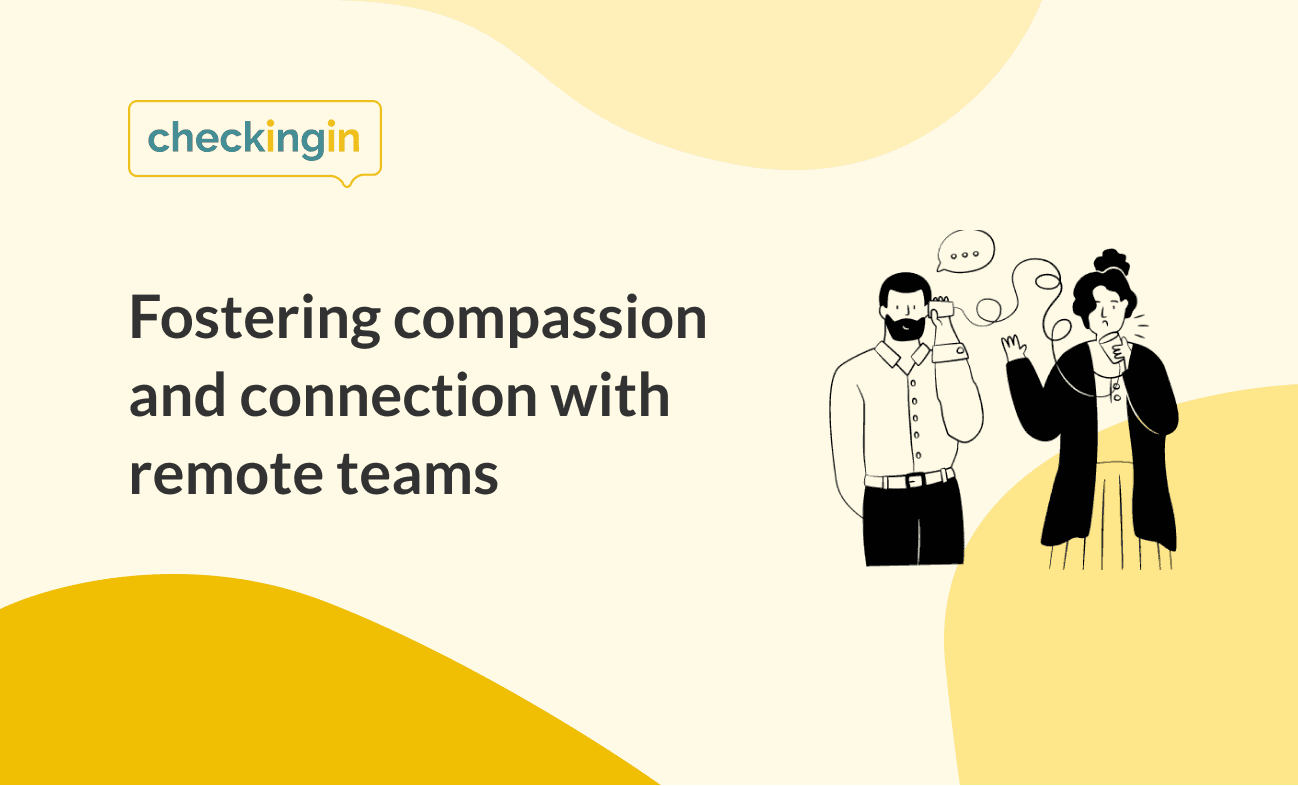How to foster compassion and connection with remote teams
October 19, 2021by Molly Johnston in Workplace Wellbeing
Online communication can be challenging, especially when it's seemingly a stranger on the other side of the screen. So, how can we mitigate this intense sense of disconnect and help foster connection and compassion in online workspaces? Here are a few helpful suggestions.
As remote work increasingly becomes the new normal, you might be finding that you miss the moments of office camaraderie that build trust and enrich your career. Maybe it's the morning coffee you share with your desk-mate or being able to show up for someone at a moment's notice when needed - these gestures of kindness and connection humanize the workplace and make work that much more satisfying - not to mention, a little more fun.
Working from home not only leaves us feeling isolated, but research also shows that distance between coworkers can have a profound impact on how much people trust each other. Virtual teammates are 2.5 times more likely to perceive mistrust and incompetence with distant colleagues than those who are closely located. Additionally, virtual teammates are reported to take 5 - 10 times longer to address concerns of mistrust.
Say you receive a simple email from Mike, it's reached you at the end of a long day, and you're feeling slightly frustrated. The email comes off as terse, maybe even a little bit rude. You may try to tell yourself that you're reading too far into the concise wording. Still, stories are easily written, especially when it's been months since you've seen Mike in person and been reminded of what a kind and well-intentioned person he is.
Online communication can be challenging, especially when it's seemingly a stranger on the other side of the screen. So, how can we mitigate this intense sense of disconnect and help foster connection and compassion in online workspaces?
Here are a few helpful suggestions.
Quality Face-time
Facetime, google meet and zoom calls have all become the new norm in the world of remote work. While we tend to reserve video calls for team meetings and more pressing matters, video communication can provide much-needed quality face time with those we work with. We're more likely to catch up or spend the time to get to know one another on a video call than we are over email. Taking a moment to prioritize face-to-face social connection, even over a quick call, can foster fondness, trust and help to avoid future miscommunication.
If you're a team lead, start meetings off with a quick check-in. By doing so, you create space for nonjudgemental heart-to-heart conversations that call for more authenticity and openness among coworkers.
Make an effort to connect outside of work.
Working from home can make it feel less intuitive for people to initiate after-work drinks or pick up a weekend soccer game, but making an effort to connect outside of work can go a long way. Plan a monthly zoom trivia night or happy hour. Better yet, if your team is in one place (and you can do so safely and responsibly), make an effort to get together in person! Team leads might consider throwing a barbeque or organizing a bowling night.
During the week, encourage your team to reach out to each other and connect individually. Randomly pair people for virtual bi-weekly coffee dates. If someone has trouble focusing, encourage them to team up with another coworker to check-in and support each other throughout the day.
If and when possible, studies show that connecting with your coworkers in person is still the best way to create connections and foster a sense of compassion and empathy.
Lead with patience and forgiveness.
This year has been tough on all of us. Everyone is facing a different set of challenges, each stretched to our limits and faced with constant uncertainty - it can feel like our patience is wearing thin. When interacting with coworkers, it's essential to keep it top of mind that we're all feeling the pressures and daily demands of having to constantly pivot and adapt to the many new iterations of "normal." While it's always easy to jump to conclusions and make judgements about how others are managing certain circumstances, challenge yourself to be objective enough to step back, remove yourself and begin to see the situation at hand through the other person's lens.

